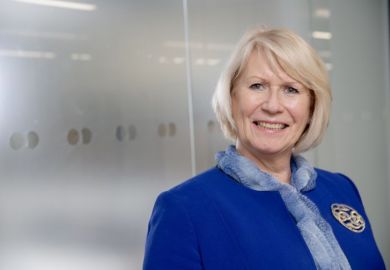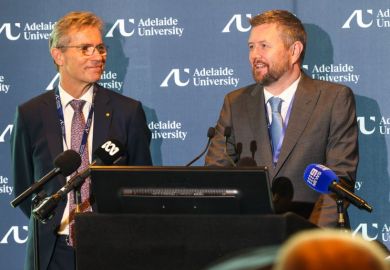Irish universities must earn the trust of the public and policymakers if they want to win more funding, the head of the country’s sector regulator has said.
Graham Love, chief executive of the Higher Education Authority, which is responsible for the governance, regulation and funding of the Republic of Ireland’s higher education system, told Times Higher Education that there was “some political appetite” for the organisation to move into a “hard regulatory space”.
The organisation currently operates on a similar arm’s-length model to the now-defunct Higher Education Funding Council for England, which was superseded by the Office for Students and Research England last month.
When asked whether there was a desire in Ireland for a regulatory organisation like the OfS, which is considered to be more interventionist than its predecessor, Dr Love said that the HEA was “being looked at more and more” to provide “accountability”.
“Now our legislative basis to do so is not strong. We operate under legislation that is much more typical of the Hefce model, the arm’s-length funding, advisory [and] policy development role. But that may change,” he said.
“There certainly is some appetite for it. Naturally, it is resisted to a degree by the institutions.”
Dr Love noted that a “number of situations” around institutional governance have “caught the attention of politicians” in recent years.
He cited the example of the University of Limerick, which has faced criticism for the way it handled whistleblowers’ claims about irregular expense claims and other matters in 2015, although he argued that Irish universities were generally “in a relatively good place” in terms of governance.
“If we want to be near the top of the list for taxpayers’ money…there has to be complete faith in the collection of that money and the distribution to the system for the good,” Dr Love said. “And if there are chinks in that armour, we destroy the argument for getting more.”
Although the HEA did “not want to be a hammer”, he continued, if accountability is “the price of getting an adequately, properly funded system, I think that’s a worthwhile objective, if it’s deployed sensitively and carefully”.
“Putting it at its simplest, I think institutions should seek to…earn their autonomy and retain it by being highly transparent and accountable to the taxpayer and to the public more generally. If institutions in the way they’re governed, the way they manage their finances, their staff and their students, are really clear, really open, they will earn and retain that respect,” Dr Love said.
“I understand that there’s a certain nervousness in the system of is there going to be some kind of heavy-handed regulator coming in. That’s not our intention; that’s not my intention. I think it should be sophisticated, I think it should be sensitive,” he added.
Ireland’s universities have faced funding cuts in the wake of the period of economic austerity after 2008.
Dr Love said that the HEA did not have a “particular position” on whether potential additional funding would come directly from the government or from students, but “we’re absolutely strong on the fact that quantum change is required, and that’s going to require a bold step”.
He added that Ireland was looking closely at England’s experience with income-contingent loans, observing that although it is a “highly tunable instrument”, the “manner in which it’s been done [in England] unfortunately is seen as the only way it can be done”.
In a wide-ranging interview, Dr Love also welcomed the recent announcement from the UK universities minister, Sam Gyimah, that Irish students would continue to qualify for home fee status and for student loan funding in the UK after Brexit, claiming that “the best solution we could get out of all of this [Brexit] is the closest to what we have today”.
But he added that “something new and positive” that might come about as a result of Brexit would be an increase in the number of joint UK-Irish academic appointments that would involve scholars splitting their time between the two countries.
“This could be something that in 20 years we look back on and say, ‘That was a really, really good thing’,” he said.
He admitted that such appointments would likely be more “motivating” should the UK not secure continued access to funding through the European Union’s research framework programmes.
Dr Love added that one silver lining of Brexit that has already been seen in Ireland is the higher “calibre” of academic applicants.
“It’s not a torrent – we have to be clear here that we haven’t had some massive injection of funding to go on a huge extra recruitment drive, so this is the normal rate of hiring and recruitment. But the quality of applicants, in part fed by people from the UK…has gone up,” he said.
POSTSCRIPT:
Print headline: Public trust ‘key’ to Irish universities getting more
Register to continue
Why register?
- Registration is free and only takes a moment
- Once registered, you can read 3 articles a month
- Sign up for our newsletter
Subscribe
Or subscribe for unlimited access to:
- Unlimited access to news, views, insights & reviews
- Digital editions
- Digital access to THE’s university and college rankings analysis
Already registered or a current subscriber? Login








